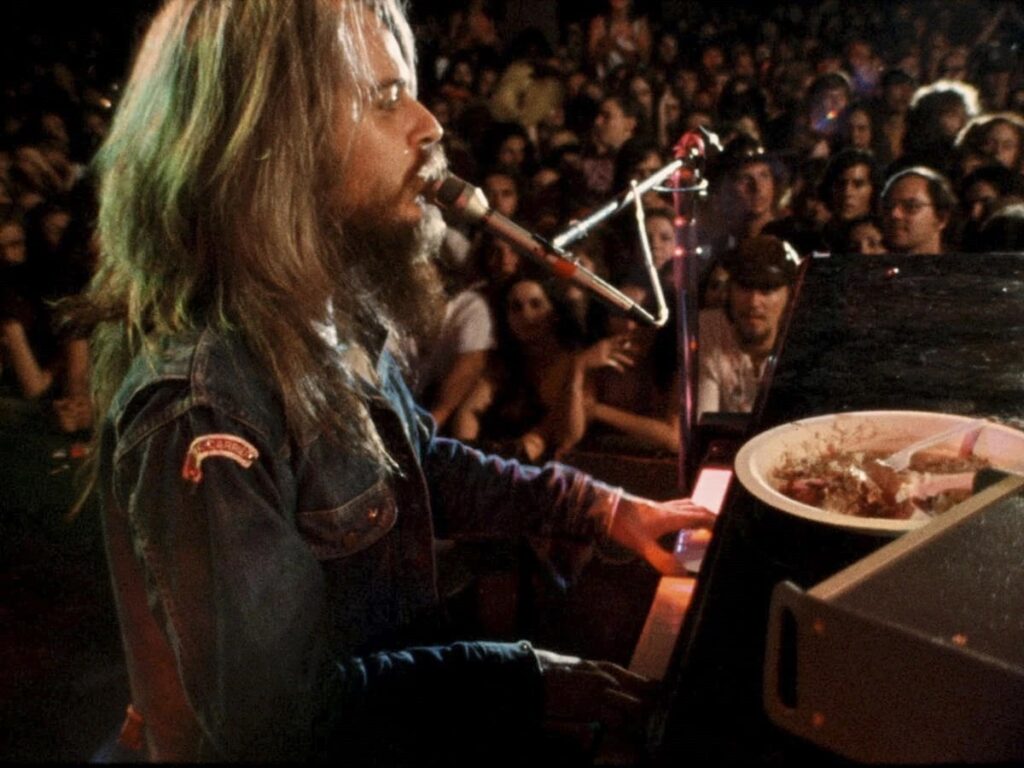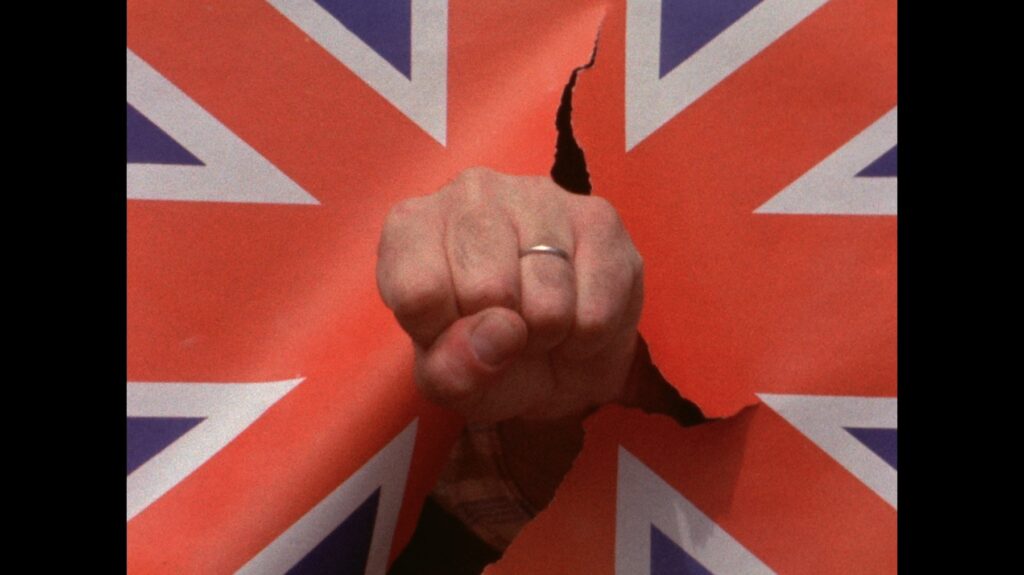Three world cinema masters—two deceased, one newly retired—are in action again this week on local screens, via a pair of extensive retrospectives and the showing of a very obscure work by one very famous director.
Though he passed away 11 years ago at age 77, Les Blank left a lasting influence on the Bay Area’s still-busy documentary filmmaking scene, perhaps even more so on the entire genre of music docs that go beyond performance footage to capture entire subcultures. There had been camera-wielding ethnographers before him, but no one had captured the communal joy at the heart of roots musics on film as he did. Ingratiating himself with seeming ease into various enclaves well off the stock touristic (let alone showbiz) map, his movies often communicated an infectious joie de vivre right up front in their titles: A Well Spent Life, Always For Pleasure, Yum! Yum! Yum!, Medicine for the Heart, God Respects Us When We Work But Loves Us When We Dance.

Most of the above and a lot more will be shown in the course of BAMPFA’s series “Les Blank: A Life Well Spent,” which opens this Fri/7 and runs through July 27 in downtown Berkeley. Its 10 programs of shorts and features traverse a nearly half-century span, and include his A Poem Is a Naked Person—an early 1970s portrait of rock star Leon Russell that went unreleased for four decades because the subject disliked it. (Although when it finally played the 2015 SXSW festival, an elderly, wheelchair-bound Russell sat in the audience and grinned through the whole thing.)
Blank did occasionally make movies about other well-known musicians, including Dizzy Gillespie, Ry Cooder, Francisco Aguabella, even Huey Lewis. But his primary interest lay in spotlighting performers and communities whose stage was often a honky-tonk or a back porch. Frequently affording players their first (sometimes only) record in the medium, he shot footage of Texas bluesmen, as well as stellar players of Cajun, Creole, Tejano, Hawaiian, Appalachian bluegrass, polka and many other musical forms. That terrain often spilled into appreciation of regional cuisine, and additional creative expressions—among his later endeavors in the BAMPFA program are 1994’s The Maestro: King of the Cowboy Artists, and (co-directing with Gina Leibrecht) the lovely, globe-trotting 2007 All This In Tea.
Blank’s friendship with a fellow director then also living in the Bay Area led to probably the former’s two most famous films: The 1980 short Werner Herzog Eats His Shoe (because he lost a bet), and 1982’s Burden of Dreams, about the tumultuous production of multinational period epic Fitzcarraldo. Co-directed with frequent collaborator Maureen Gosling, who will be present at many of the series screenings (along with Leibrecht, Blank’s son Harrold, and others), it is the rare “making-of” document that many consider better than the completed project itself. Burden will end that series in a new 4K digital restoration print on July 27. For the entire tribute’s program and schedule info, go here.
Also starting this weekend at BAMPFA is an even longer salute to quite possibly the most famous and influential animator since Walt Disney. “Hayao Miyazaki’s Spirited Cinema,” running this Sat/8 through August 31, assembles all twelve features from the Japanese luminary who officially retired last year with swan song The Boy and The Heron—which snatched the Oscar away from home-turf favorite Spider-Man: Across the Spider-Verse.
It was a graceful summing-up of themes and motifs he’d begun making familiar even before co-founding Studio Ghibili in 1985. This series goes all the way back to his 1979 first directorial feature The Castle of Cagliostro, encompassing such beloved subsequent efforts as Princess Mononoke, Spirited Away, My Neighbor Totoro, Howl’s Moving Castle, The Wind Rises, Ponyo, and Kiki’s Delivery Service, as well as less-frequently-revived titles. All showing in their original Japanese-language versions (with English subtitles, of course), most starting mid-to-late afternoon for the convenience of family audiences. For complete info, go here.

Definitely not for the wee ones—they’ll be bored and/or baffled, not to mention the full-frontal nudity—is San Francisco Cinematheque’s program at The Lab this Thu/6. Named after the London publisher of books on cinema, including two recent ones spotlighting the relevant filmmakers, “The Visible Press: Jean-Luc Godard/Lis Rhodes” brings together works by two radical innovators at their experimental peak 50 years ago or so.
The Godard is one of his rarest, co-directed with Jean-Henri Roger, and one of the first products of the filmmaking collective he co-founded, Dziga Vertov Group—named after the revolutionary Soviet documentarian. 1969’s British Sounds begins with an 11-minute shot of a sportscar assembly line, accompanied by recitations from Marx & Engels’ Communist Manifesto. The indictment of bourgeoise values continues as another soundtrack voice discusses capitalism’s systemic oppression of women—a sentiment somewhat undercut by the camera’s aforementioned ogling of a naked young female—then a parodic TV news commentator whinging on about our “so-called permissive society,” “longhaired sex perverts,” pesky immigrants, Third World nations (“Let them starve, let them die. Well, let them starve at least”) and other Tory bugaboos at the time.
Nearly an hour long, this essayistic exercise in “anti-imperialist cinema” was commissioned for UK television, but unsurprisingly rejected for broadcast once the network spied what Godard had wrought. Lacking the aesthetic appeal of his equally didactic prior La Chinoise, Sounds (which eventually got a tiny theatrical release as See You At Mao) is a curio for completists… but who wouldn’t want to see all of 1960s Godard? It will be shown with three short Seventies abstractions by Rhodes, an English feminist artist in various media who is still with us. Jean-Luc, you may recall, shrugged off this mortal coil a couple years ago, at age 91… no doubt cantankerous to the end. For more info on the Cinematheque program, go here.






